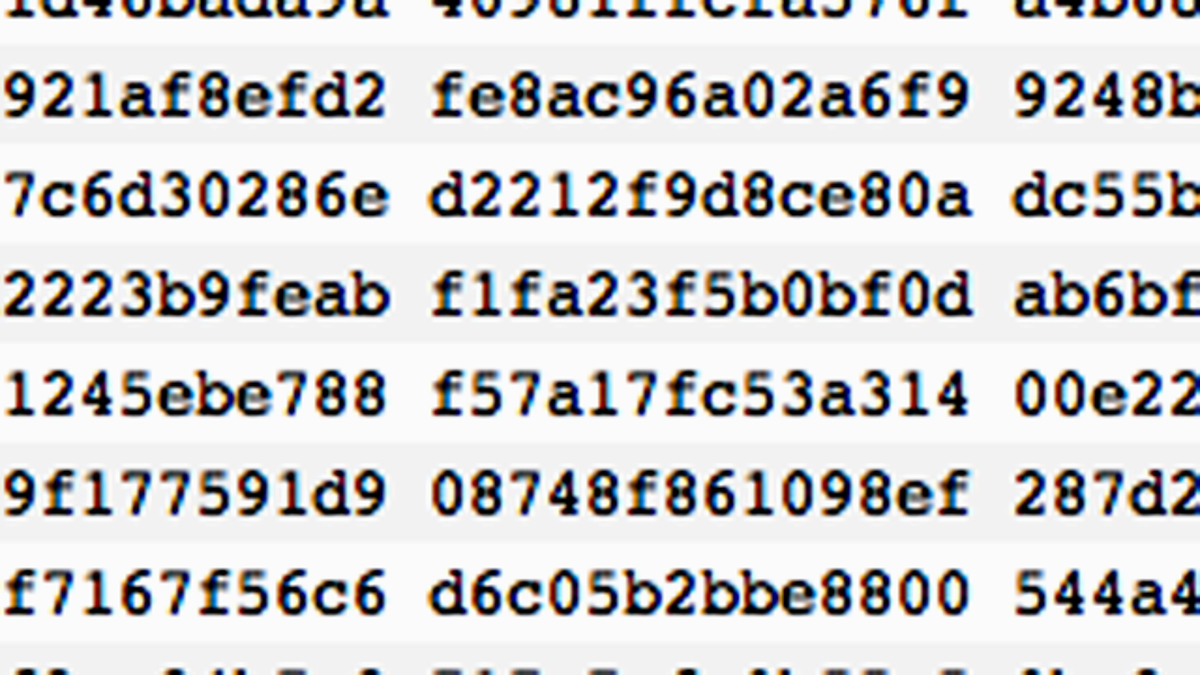
A tiny portion of the HDCP code released online Tuesday, which Intel confirmed was indeed a "master key" for HD content. But to use it, a pirate would need to manufacture a silicon chip, not simply write a piece of software.
Much to the chagrin of the entertainment industry, the encryption that protects most high-definition video content has officially been cracked, an Intel spokesman told FoxNews.com. But don't expect illegal hardware to flood the market anytime soon, he said.
Worries swirled about the future of high-definition devices such as TVs and Blu-ray players, following rumors Tuesday that the copy protection technology keeping all that content safe may have been cracked.
Intel confirmed Thursday to FoxNews.com that the High-bandwidth Digital Content Protection (HDCP) -- the digital rights management software that governs every device that plays high-def content -- had in fact been compromised.
"It does appear to be a master key," said Tom Waldrop, a spokesman for Intel, which developed and oversees the HDCP technology.
"What we have confirmed through testing is that you can derive keys for devices from this published material that do work with the keys produced by our security technology," he told FoxNews.com. In other words, "this circumvention does appear to work," Waldrop said.
Found in Blu-ray players, set-top boxes, and many high-definition displays, HDCP prevents the copying of audio and video content as it travels across the cables that connect HD devices. It's required to send a video across the thin, flat HDMI cables that link most new flat-panel TVs to gaming systems, Blu-ray players, or whatever.
The hack unlocks protected content by providing a "master key," which could be used to strip that encryption from, say, the link between your cable box and your DVR. Without those restrictions, a nefarious user could make unlimited copies -- rendering the copy-protection software useless.
Or build new devices that bypass the license fees Intel charges for the content -- and ignore the content restrictions that HDCP sets in place. However, Intel doesn't think piracy will suddenly increase, Waldrop told FoxNews.com.
"For someone to use this information to unlock anything, they would have to implement it in silicon -- make a computer chip," he told FoxNews.com. And after making a chip, someone would have to build it into a device, either on an individual basis or on a production line. And Intel just doesn't see that happening.
"It would be a lot of work and a lot of expense to do that," Waldrop said. Nevertheless, the risk exists that pirates in countries less respectful of copyright law could take on that expense, releasing Blu-ray players and televisions that bypass the licensing fees and knock a chunk off retail costs.
"We will use the appropriate remedies to address the issue, where we choose to," Waldrop said.
Despite the release of the crack, he remains confident that the encryption technology is still sound, and remains the best way to keep content protected.
"HDCP remains an effective component for protecting digital entertainment. It relies on these licensing agreements to ensure that implementations are done appropriately, and there are legal enforcement methods available for cases where it is done inappropriately."








































